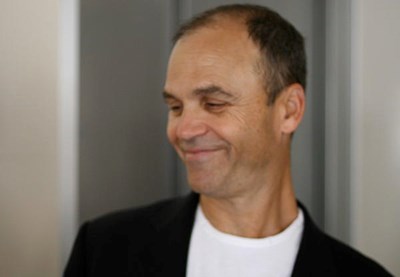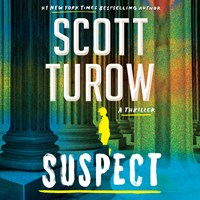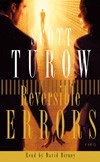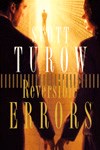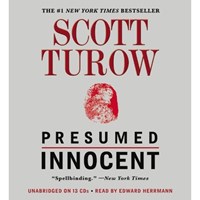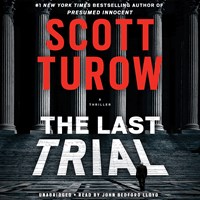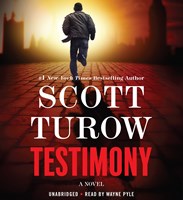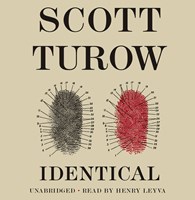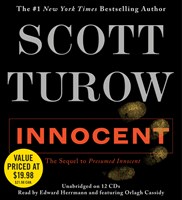Get our Newsletter
-
- Reviews
- Narrators
-
Features
- Audiobook ClubStart a conversation with your book club
- Best Audiobooks2023 Best Audiobooks
- ArticlesDiscover the diverse voices of audiobooks
- NarratorsSpotlight on popular narrators
- AuthorsAuthors talking about their audiobooks
- Upcoming TitlesFind upcoming audiobook release announcements
- Kids and TeensListening selections for kids & teens with age levels
- Audie Awards 2024 Audie Awards
- Subscribe
- About
- Articles
Talking with Scott Turow
Scott Turow remembers being surprised, as a first-time novelist in the late 1980s, when his agent, Gail Hochman, called to see whether he wanted to sell the audio rights to PRESUMED INNOCENT. “What’s a book on tape?” he asked. A couple of prospective publishers sent him samples, which he listened to with swiftly increasing respect.
“That’s when I really formed my opinion that although audiobooks may be different, they’re still an essential literary experience,” Turow recalled recently. “They’re not a violation of anything, but rather really consistent with reading books. I wouldn’t say that about film [adaptations]. Here, it’s still just text, as amplified by a human voice. I believe our attachment to literature begins with being read to as children. So an audiobook just reduces the literary experience to its primal roots. Being read to is enormously pleasant, and it continues to be pleasant even in adulthood.”
Turow’s personal taste in audio runs mostly to poetry. “I’m a suburbanite, so there are not a lot of long trips, and you can get in two poems by the time you get to the cleaners.” When he’s with his family on long car trips and aims for a consensus, “There’s no question that Dave Barry remains the number one choice.”
Turow’s latest book, REVERSIBLE ERRORS, is his sixth bestselling novel in a row, following his widely discussed 1977 debut as the author of ONE L, his only work of nonfiction, which surveyed life in the first year of Harvard Law School.
Turow, 53, as mild-mannered in casual conversation as he is passionate when discussing legal or social issues, is a supporting player in the audio productions. “I’m told who the choice is likely to be, and I’m asked if I approve or have a problem. At times, I’ve been sent voice samples. I don’t recall ever overruling any decision. I do read the [abridged] scripts. I want to see what’s gone and then think through whether it’s going to make sense. At times—but not with this book—I have called for doing it a different way. Being a lawyer and a pragmatist, I know the tape can only hold so much. So if I do want something back, I’ll say, ‘But I think you can give up this.’”
Curiously, every one of Turow’s novels has had a different reader—solid theatrical types such as Blair Brown, Len Cariou, Stacy Keach, Joe Mantegna, and John Heard. “I have to tell you,” Turow said, “the only person who hasn’t been asked to read them is me! I don’t know what I would do if I were.”—Michael J. Bandler
FEB/MAR 03
©2003 AudioFile, Portland, Maine
Photo by Elena Torre
The latest audiobook reviews, right in your inbox.
Get our FREE Newsletter and discover a world of audiobooks.


